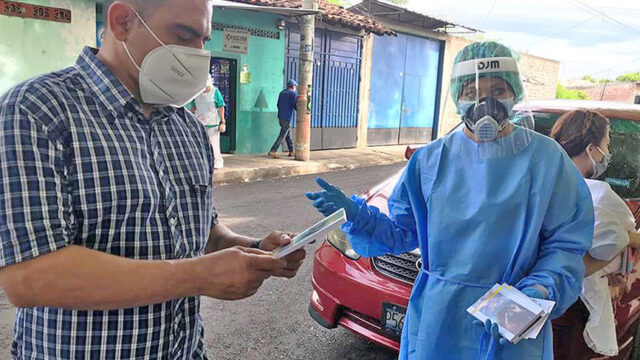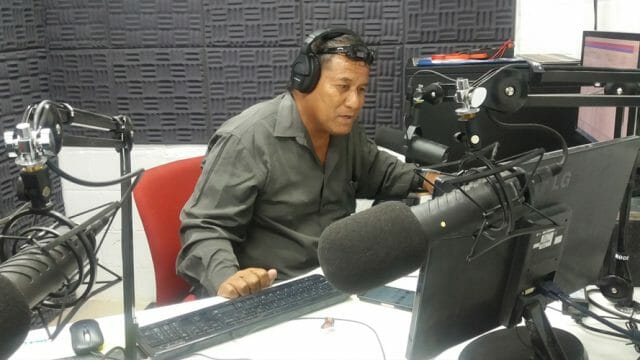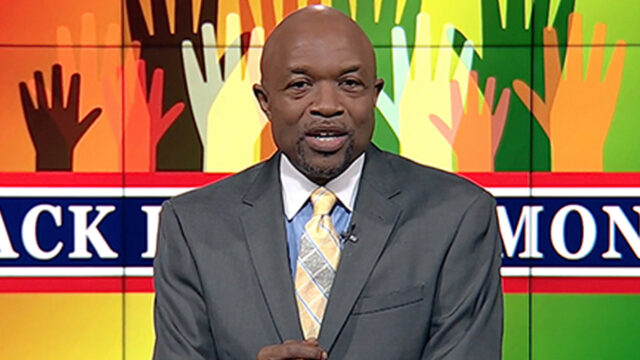In health care settings, active listening and prayer can go a long way to connect.

Theresa Watkins began sending emails to her team members this year to ask for prayer requests. A radiology data coordinator at AdventHealth Shawnee Mission, she and others in the department divide up a list of 150 radiology staff to make sure everyone is prayed for every quarter. They let their team members know that they’ll be praying for them and asked if they had any special requests.
“People are so appreciative that someone is there for them,” Watkins said. “I had a couple of people telling me the email came at an opportune time because they had a struggle in their lives or with their families.”
Watkins reaches out to her fellow team members as part of the Spiritual Ambassador program at AdventHealth Shawnee Mission, an Adventist health care facility in Overland Park, Kansas, United States. Through the program, she helps give emotional and spiritual support in times of need.
“Our goals are to build trust, create community, and foster hope,” said Mark Stoddart, administrative director of spiritual wellness at AdventHealth Shawnee Mission. “A spiritual ambassador works to facilitate a safe place where people can be themselves.”
Coming Alongside Spiritual Journeys
The program was started in 2002 at AdventHealth’s flagship hospital in Florida, AdventHealth Orlando. Back then, nurses at the hospital approached their chief nursing officer to ask if they could pray for those who needed spiritual support, said Sergio Torres, manager for spiritual ambassadors at AdventHealth. Those 25 nurses became the first spiritual ambassadors and helped to advance the hospital’s mission in extending the healing ministry of Christ.
“They saw themselves as ambassadors to come alongside people’s journeys and be able to minister through prayer and spiritual counseling,” Torres said.
Torres estimates there are about 5,000 spiritual ambassadors at AdventHealth facilities in 2019. He visits the hospitals to provide training and guidance for those who volunteer for the program. Spiritual ambassadors are encouraged to find ways to serve the needs of team members as well as the community.
“It’s about building intentional relationships,” Torres said. “That means listening to other people’s stories and being a part of their journey, so when they’re in a difficult moment, they know they have someone there for them.”
During the presentations, Torres talks about serving three basic human needs: trust, belonging, and hope.
“We have to earn the respect of others in our relationships,” Torres said. “A spiritual ambassador should be someone who has an outlook of peace and joy to create a positive, enriching experience for team members.”
A Rewarding Experience
Spiritual ambassadors should be trustworthy and make all team members feel like they belong, he adds.
That starts with accepting differences, including religious and cultural backgrounds. “I don’t have to fit in to belong. I don’t have to change who I am to belong. I just have to be me,” Torres explained.
When people know they’re not alone, they feel hopeful and positive about coming to work every day. “Hope comes out of providing meaning,” Stoddart said. “That meaning can be found in whatever line of work you have, whether it’s clinical or nonclinical. It’s about knowing that your service means something to others.”
For Watkins, the program has been a rewarding experience. She started volunteering because she liked the idea of acknowledging spirituality in the workplace. She often shares with team members how faith has helped her get through stressful situations. She feels honored that people trust her to talk about their challenges and make sure they know she’s on their side.
“It takes the pressure off that you don’t have to have all the answers,” she said. “We just have to be there and listen.”
The original version of this story was posted by the Mid-America Union Conference OUTLOOK news site.








